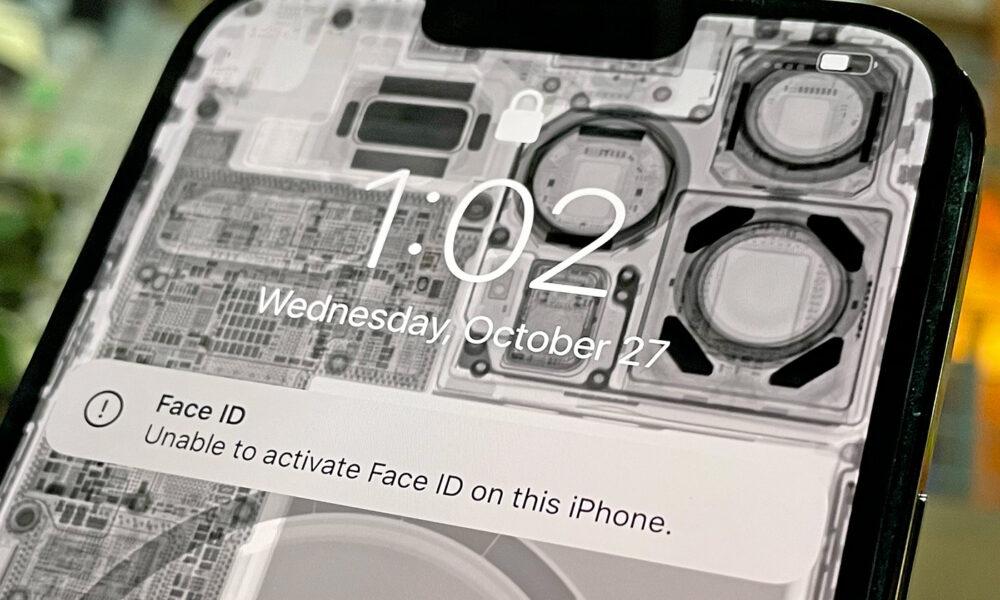Since iPhone 13, any screen replacement carried out by an unauthorized third-party repairer causes, in addition to the appearance of error messages and the deactivation of True Tone, the deactivation of Face ID facial recognition. As iFixit explains, Apple has always been finding new ways to limit third-party repairs for years.
The firm does not sell spare parts, and is one of the fiercest opponents of the idea of a right to repair which would oblige it to do so. We remember the appearance of TouchID sensors “married” to your iPhone from the iPhone 5. Apple has since largely developed what is called in the industry “serialization”.
iFixit confirms that Apple voluntarily breaks Face ID in the event of unauthorized screen replacement
The idea is to ideally put a chip on all the components of the smartphone, containing a serial number. Each complete unit must be “synchronized” with all the serial numbers of its components. Thus in the event of replacement of an element, the serial number differs and the smartphone can then display an error message or deactivate functionalities.
iFixit chokes: “It’s a dark day for repairers, whether amateur or professional. One of the most common smartphone repairs that until recently could be done with hand tools now requires the use of a microscope. That means you won't be able to repair your iPhone screen yourself without skipping major features."

And iFixit continues: “For repairers who want to survive, their only option will be to join the expensive Independent Repair Program (IRP) network – which is not an option for stores that focus on their customers' privacy – or bypassing iPhone locks with microwelding tools and training.”
The complete deactivation of Face ID in the event of repair is new for the iPhone 13. iFixit explains that it has found the culprit: a chip the size of a grain of rice at the bottom of the screen. The iCorrect YouTube channel also shows that un-soldering this chip to re-solder it on the replacement screen correctly recognizes the spare part without deactivating Face ID.
Obviously the operation is as ridiculous as it is complex given that the authorized repairers only have to press a button for all the serial numbers to be synchronized with the device. By locking down screen repair, however, Apple has made a real strategic move to put third-party repairers at risk. Screen changes are indeed a major source of income for them.
“The most credible thing is that it is a strategy. This situation makes AppleCare essential on recent iPhones, unless you know that your local repairman is equipped to deal with these new tests. Or that you planned never to drop your iPhone,” iFixit believes. Who adds that “Apple has crossed the Rubicon”.
Also read – Chinese hackers managed to hack an iPhone 13 Pro in 15 seconds
“If we want repairers to exist in our local communities, we have no choice but to pass the Right to Repair Act to protect them from this predatory and monopolistic attitude,” concludes iFixit. What do you think of this new affront against unauthorized repairs? Share your opinion in the comments.
Getting Started OPPO Find N Latest Video Subscribe









Samsung Galaxy S22, Uncharted et pl...
Tesla: you can now enjoy YouTube in...
EM – Butler vs Purdue Basketball Li...
Nantes. A child victim of an acci...